Ludo Legend: India's Digital Board Game Phenomenon
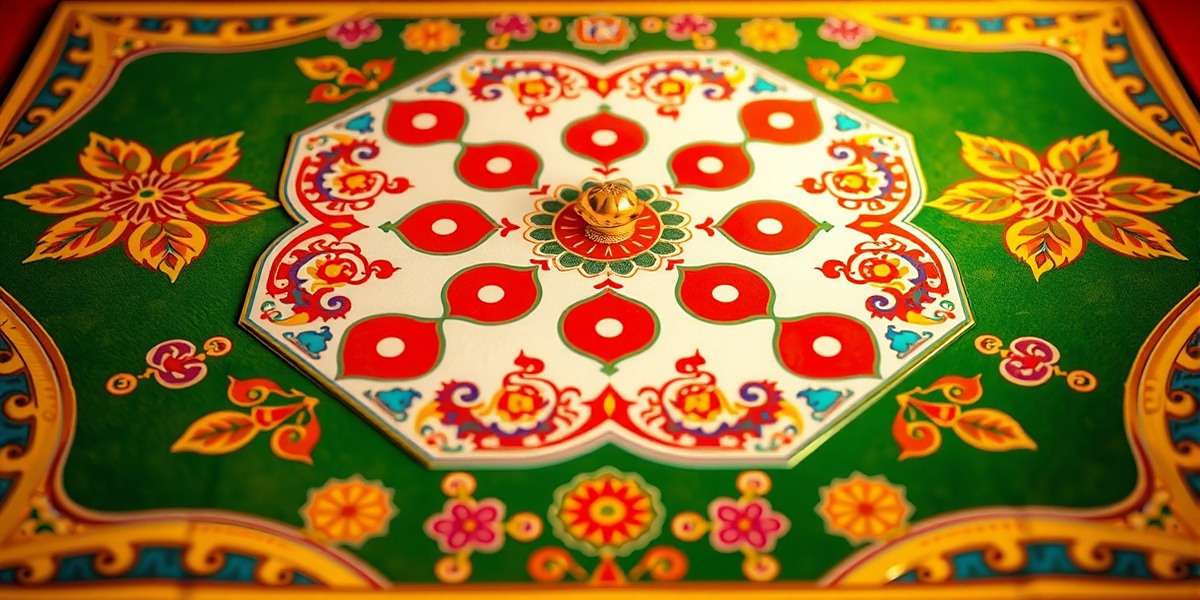
Introduction to Ludo Legend
Ludo Legend is more than just a game in India - it's a cultural institution that has brought families together for generations. From rainy afternoons to festival gatherings, Ludo has been a constant presence in Indian households.
With the digital revolution sweeping across India, Ludo Legend emerged as the perfect bridge between tradition and technology, capturing the essence of the classic board game while adding exciting new features for the modern player.
Launched in 2019 by Daman Games, Ludo Legend quickly became a sensation in the Indian gaming market. By early 2024, it had surpassed 120 million downloads, making it one of the most popular mobile games in the country's history.
What truly sets Ludo Legend apart is its deep understanding of how Indians play Ludo. Unlike generic international versions, this game respects the nuances of Indian gameplay traditions, regional variations, and social aspects that make Ludo more than just a pastime.
Whether you're playing with family during Diwali, passing time during a train journey, or connecting with friends across different cities, Ludo Legend has become the go-to digital version of this beloved game for millions of Indians.
📊 Key Statistics for Ludo Legend in India
The game's popularity cuts across all demographics, which is rare in the Indian gaming landscape. It's equally loved by children learning to count, teenagers connecting with friends, and adults reliving their childhood memories.
During the COVID-19 pandemic, Ludo Legend saw a 300% increase in downloads as families stuck at home turned to the game for entertainment and connection. Many Indians have shared stories of how the game helped them stay connected with relatives during lockdowns.
What's particularly noteworthy is Ludo Legend's penetration in Tier 2 and Tier 3 cities, as well as rural areas. With optimized performance for low-end smartphones and minimal data usage, the game has introduced digital gaming to millions who previously had limited access.
In small towns like Ajmer, Warangal, and Jalgaon, Ludo Legend tournaments have become regular community events, often organized in local tea stalls and community centers. This grassroots popularity has solidified the game's position in Indian culture.
Gameplay Mechanics of Ludo Legend
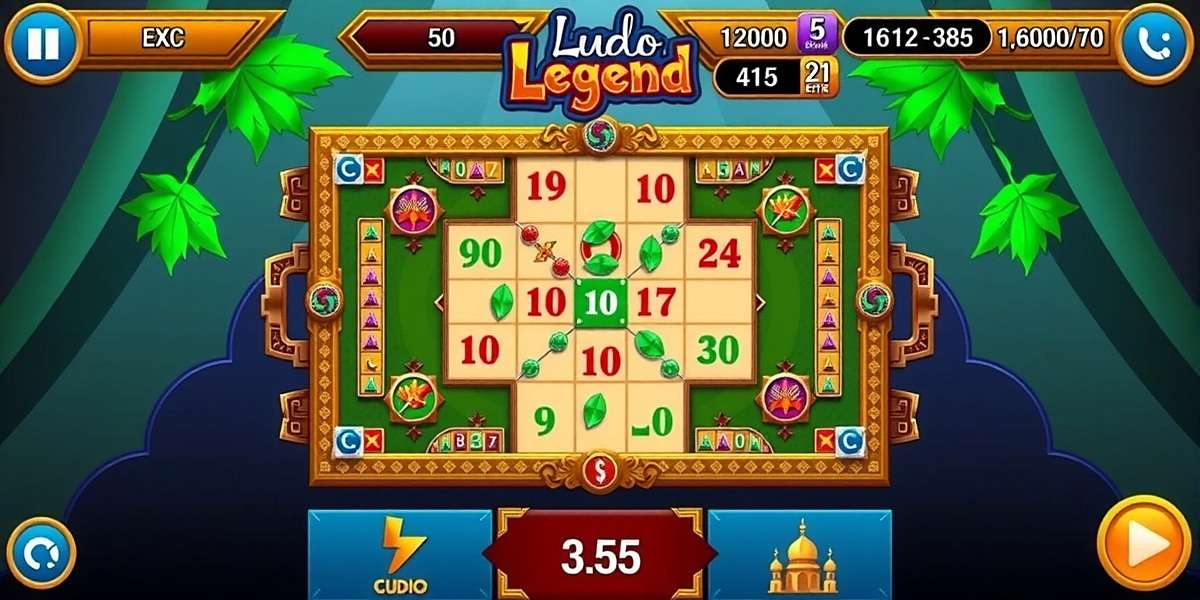
The core gameplay of Ludo Legend remains faithful to the traditional Indian version of Ludo that has been played for decades. The objective is straightforward - be the first to move all your tokens from the starting area to the home triangle.
Players take turns rolling a single die to determine how many spaces to move their tokens. Tokens start in the "home" area and can only enter the main board when a six is rolled. Rolling a six also earns the player an additional turn, a rule that adds excitement and strategy to the game.
One of the most thrilling aspects of Ludo, which Ludo Legend preserves perfectly, is the ability to capture opponents' tokens by landing on the same square. When this happens, the captured token is sent back to its starting area, creating moments of both celebration and friendly frustration that are part of the game's charm.
Game Modes Available
Ludo Legend offers a variety of game modes to suit different playing styles and occasions, reflecting how Indians play Ludo in various situations:
- Classic Mode - The traditional 4-player game with rules that Indian players know and love, perfect for family gatherings
- Quick Ludo - A faster version with smaller board size, ideal for short breaks between work or during commutes
- 2-Player Duel - Special mode for head-to-head competition, popular among couples and close friends
- Team Play - 2 vs 2 mode where players can form teams, reflecting how Ludo is often played in Indian social gatherings
- Tournament Mode - Compete against multiple players in knockout-style competitions with in-game rewards
- Royal Mode - With special power-ups and obstacles, adding a strategic twist to the traditional gameplay
- Story Mode - Journey through Indian history with each level representing a different era, combining education with entertainment
One of the most appreciated features among Indian players is the "House Rules" option, allowing customization according to regional and family traditions. Different parts of India have developed their own unique ways to play Ludo over generations.
For example, players can enable the "Mumbai Rule" where rolling three sixes in a row results in a penalty, or the "Hyderabad Rule" where certain squares offer protection from being captured. These options demonstrate Ludo Legend's deep understanding of India's diverse gaming culture.
💡 Chacha's Advice for New Players
Remember, beta, Ludo is not just about rolling sixes - it's about patience and strategy. In our village, we say "जितना शांत रहेंगे उतनी ज्यादा जीतेंगे" (the calmer you stay, the more you'll win). Don't rush to bring all your tokens out at once. Sometimes, keeping one safe is better than risking all!
The game interface is designed to be intuitive for players of all ages and tech-savviness. Rolling the die is as simple as tapping the screen or shaking the phone - a feature that has made it popular with older generations who may be less familiar with mobile games.
For younger players, Ludo Legend includes helpful tutorials and voice guidance in multiple Indian languages, making it easy for children to learn the game without adult assistance. This has contributed to the game's popularity in Indian schools as an educational tool for teaching counting and turn-taking.
Another feature that resonates with Indian players is the "Pause & Resume" functionality, which allows games to be paused at any time and resumed later. This accommodates the interruptions that are common in Indian family life - whether it's answering the door, serving guests during festivals, or attending to household chores.
Unlike many mobile games that require constant internet connectivity, Ludo Legend can be played entirely offline against AI opponents or with friends on the same device. This is particularly valuable in areas with unreliable internet connectivity, which is still common across many parts of India.
Unique Features of Ludo Legend
Ludo Legend distinguishes itself from other digital Ludo games through its authentic Indian flavor and understanding of how Indians play and enjoy games in their daily lives.
🇮🇳 Indian Cultural Elements
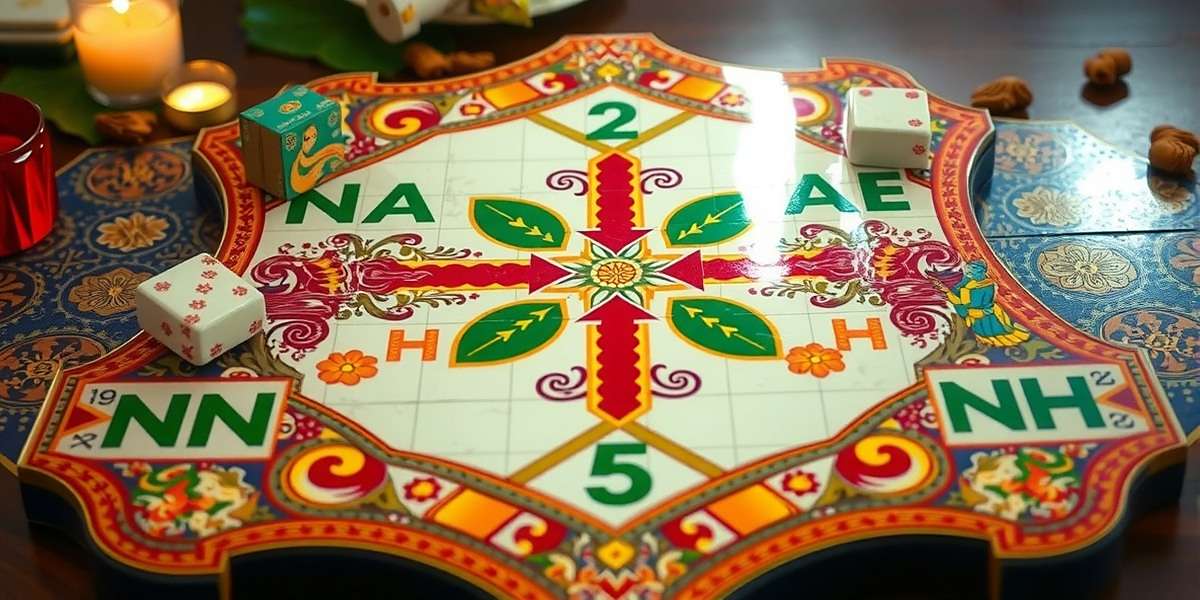
Unlike generic international versions, Ludo Legend is steeped in Indian culture, mythology, and traditions, making it instantly relatable to Indian players:
The game boards feature stunning artwork inspired by various Indian art forms. Players can choose from boards decorated with Madhubani paintings from Bihar, Pattachitra from Odisha, Kalamkari from Andhra Pradesh, and Warli art from Maharashtra, among others.
Tokens in Ludo Legend are not generic pawns but reflect Indian culture - from tiny elephants and camels to representations of Indian deities, historical figures, and even popular Indian snacks like samosas and vadas.
Background music and sound effects draw from Indian musical traditions, with options ranging from classical ragas to folk music from different regions. The die roll sound, for example, can be set to the sound of a traditional Indian drum or the chime of temple bells.
Celebratory animations when a player wins or captures an opponent's token incorporate Indian dance forms like Bhangra, Garba, and Bharatanatyam, adding joyous cultural touches to key moments in the game.
Festival Special Events
One of Ludo Legend's most beloved features is its special events tied to Indian festivals, which have become a cultural phenomenon in their own right:
Diwali Edition - The board transforms with diyas (oil lamps), rangoli patterns, and firecrackers. Special golden squares multiply your moves, and capturing an opponent's token triggers a virtual firecracker display. During Diwali 2023, over 18 million Indian families played the special Diwali version.
Holi Celebration - The board is splashed with vibrant colors, and landing on certain squares covers your tokens in colored powder (gulal). Special "color attack" moves allow you to temporarily slow down opponents, reflecting the playful spirit of Holi.
Dussehra Event - Features a special board where tokens can "burn" opponents' tokens (like Ravana's effigy) for extra points. The final home square is designed as a victory podium with Rama, Sita, and Lakshmana.
Ganesh Chaturthi Update - Lord Ganesha appears as a special helper who can protect your tokens from being captured. Collecting modaks (sweet dumplings) on the board earns extra rolls.
Pongal/Sankranti Version - The board becomes a harvest festival scene with sugarcane, rice, and kites. Special kite squares allow you to "fly over" opponents' tokens, avoiding capture.
These festival events typically increase daily active users by 70-90% and have become a much-anticipated part of India's digital festival celebrations. Many families now include Ludo Legend's festival editions in their traditional holiday activities.
Social and Multiplayer Features
Understanding that games in India are often a social activity, Ludo Legend includes robust multiplayer features that facilitate connection and competition:
The "Family Room" allows players to create private games with up to 8 family members, with video chat integration so you can see and hear each other while playing. This feature became particularly valuable during the pandemic when physical gatherings were restricted.
"Neighborhood Matches" let players compete with people in their local area, creating friendly rivalries that often spill over into real-life interactions. In many housing societies across India, these matches have become regular social events, with winners receiving small treats from local shops.
Players can send each other virtual gifts, especially during festivals. The gifting system includes traditional Indian items like sweets, flowers, and small tokens that reflect real-world gift-giving traditions.
The "Respect" feature allows players to acknowledge good moves by opponents, promoting sportsmanship and reflecting Indian cultural values of respecting both victory and defeat with grace.
For those who prefer playing alone, Ludo Legend offers AI opponents with different difficulty levels and playing styles inspired by different regions of India. The "Delhi AI" is known for aggressive moves, while the "Kerala AI" plays more strategically and patiently.
Accessibility Features
Ludo Legend has gained praise for its accessibility features that make the game playable for Indians with various abilities and devices:
The game works smoothly on low-end smartphones, which are still widely used across India. This includes devices with 1GB RAM or less, ensuring that Ludo Legend is accessible to players regardless of their device's capabilities.
High contrast mode and adjustable text sizes make the game playable for users with visual impairments, a feature that has been recognized by disability rights organizations in India.
Offline gameplay capabilities ensure that players in areas with poor or no internet connectivity can still enjoy the game, which is crucial for reaching rural players across India.
Low data usage mode reduces data consumption by up to 90%, making online multiplayer feasible even for players with limited data plans, which is common in many parts of India.
Regional Versions and Localization
India's incredible cultural diversity is reflected in Ludo Legend's approach to regional localization. The game doesn't just offer language options but creates distinct experiences tailored to different parts of the country.
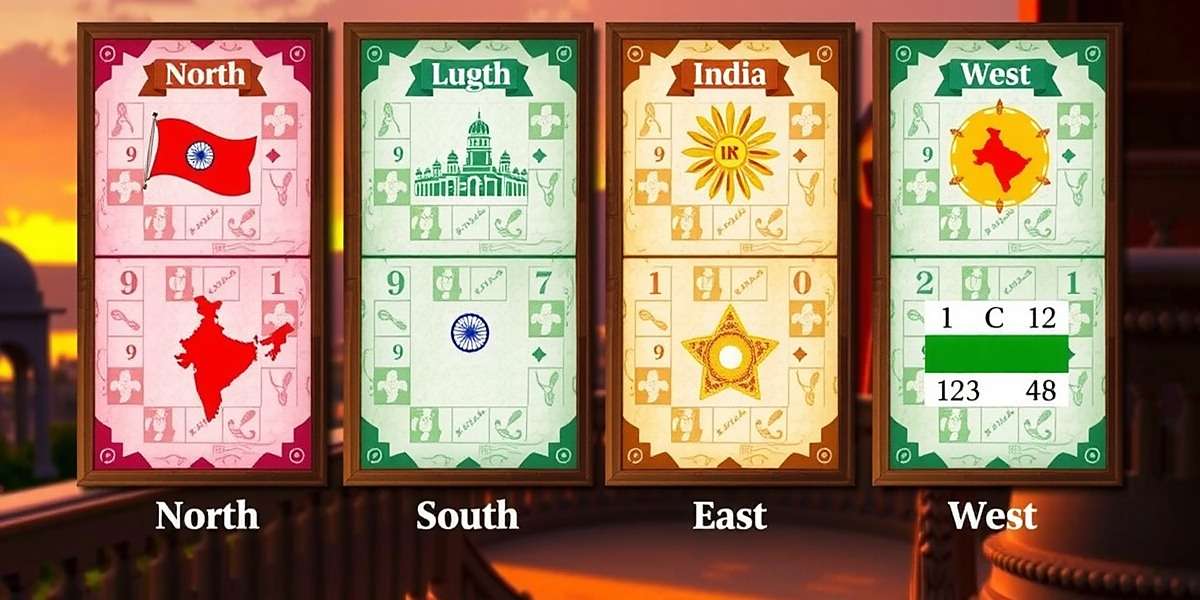
Language Support
Ludo Legend offers comprehensive support for 22 Indian languages, each with region-specific terminology and cultural references:
- Hindi (with regional variations for Uttar Pradesh, Bihar, Rajasthan, and Madhya Pradesh)
- English (Indian variant with local terms and expressions)
- Bengali
- Telugu
- Tamil
- Marathi
- Gujarati
- Punjabi
- Kannada
- Malayalam
- Odia
- Assamese
- Urdu
- Konkani
- Nepali
- Sanskrit (for educational purposes)
- Manipuri
- Sindhi
- Bhojpuri
- Maithili
- Garhwali
- Kashmiri
Each language version includes not just translated text but culturally appropriate examples and references. The Punjabi version uses idioms from Punjabi folk literature, while the Tamil version includes proverbs from ancient Tamil texts like Thirukkural.
Voiceovers for each language are performed by native speakers, ensuring authentic pronunciation and intonation. This attention to linguistic detail has made Ludo Legend popular among non-English speaking Indians, particularly in rural areas.
Interestingly, the game's language data shows that Hindi, Telugu, and Bengali versions are the most popular after English, reflecting the game's widespread appeal across India's linguistic diversity.
Regional Board Designs
One of Ludo Legend's most distinctive features is its collection of region-specific boards, each celebrating the unique culture, landmarks, and traditions of different Indian states:
North India Board - Features landmarks like the Taj Mahal, Red Fort, and Qutub Minar. The design incorporates elements from Mughal architecture and Sikh art, with tokens representing camels, horses, and elephants from the region.
South India Board - Showcases temple architecture from Tamil Nadu, backwaters from Kerala, and IT landmarks from Bangalore. The artwork draws heavily from Carnatic music traditions and South Indian dance forms like Bharatanatyam and Kuchipudi.
East India Board - Highlights the Sundarbans, Darjeeling tea gardens, and Kolkata's colonial architecture. The design incorporates elements from Bengali literature, Bihu festival traditions from Assam, and Odisha's Jagannath culture.
West India Board - Features the Gateway of India, Gir Forest, and desert landscapes of Rajasthan. The artwork reflects Gujarati navratri traditions, Marathi culture, and Rajasthani folk art.
Northeast India Board - Celebrates the diverse cultures of Assam, Meghalaya, Nagaland, and other northeastern states with their unique tribal art, natural beauty, and traditional festivals.
Each regional board comes with its own set of local challenges and bonuses. For example, the Punjab board includes a special "bhangra square" that gives an extra turn when landed on, while the Kerala board has "backwater squares" that allow tokens to move forward or backward with the current.
Regional Gameplay Variations
Recognizing that Ludo is played differently across India, Ludo Legend incorporates regional rule variations that reflect local traditions:
Northern Style - Players can only enter the home triangle by exact count. Rolling a six three times in a row results in all tokens being sent home. This variation is popular in Uttar Pradesh, Punjab, and Delhi.
Southern Style - Features "safe zones" where tokens cannot be captured. Players can move tokens backward if it helps avoid capture. This variation is common in Tamil Nadu, Karnataka, and Kerala.
Eastern Style - Tokens can be "doubled up" on the same square for protection. Rolling a one allows a player to swap positions with any opponent's token. This variation is preferred in West Bengal, Bihar, and Jharkhand.
Western Style - Includes special "mercy rules" where a player with no tokens on the board for five turns gets a free six. This reflects the more casual playing style common in Maharashtra and Gujarat.
These regional variations were developed with input from local players across India, ensuring authenticity and resonating with regional pride. Many players enjoy trying different regional styles to experience how Ludo is played in other parts of the country.
Ludo Legend Community in India
The Ludo Legend community has grown into one of India's most vibrant gaming communities, bringing together players of all ages through their shared love for this classic game.
Tournaments and Competitions
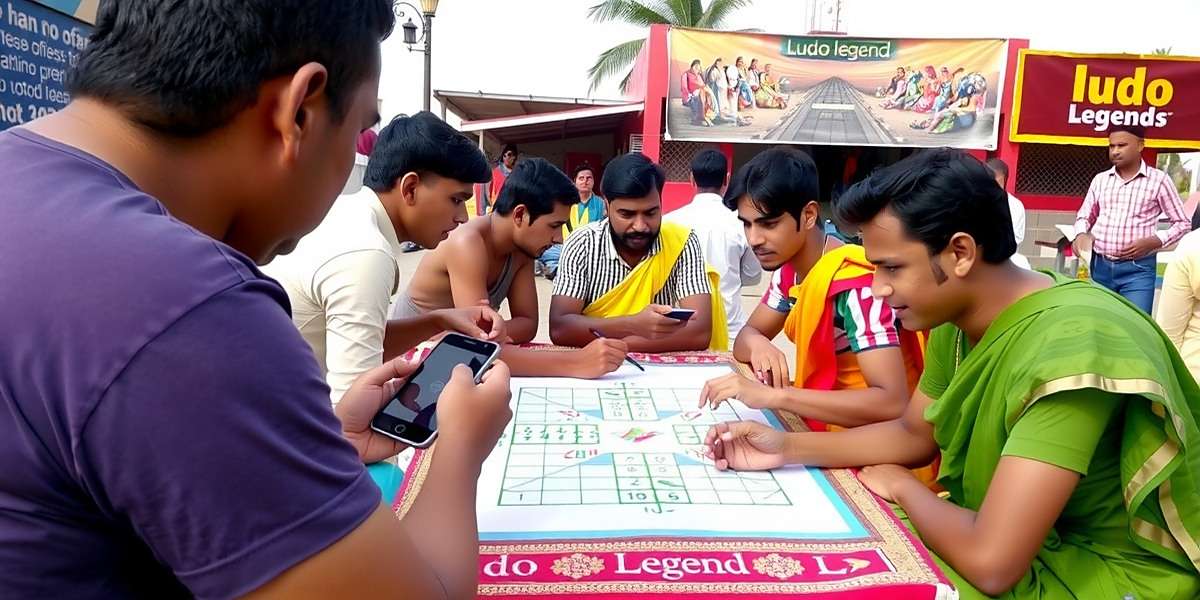
What started as a casual game has evolved into a competitive sport with organized tournaments across India, creating a new form of community entertainment:
The annual "National Ludo Championship" organized by Ludo Legend attracts thousands of participants from every state. The 2023 championship, held in Ahmedabad, offered a prize pool of ₹25 lakhs and was streamed live on multiple platforms, garnering over 3 million viewers.
Local tournaments have become popular community events, especially in small towns and cities. Places like Indore, Coimbatore, and Bhubaneswar host monthly competitions that often include both digital and traditional board game categories, bringing generations together.
These tournaments are unique in India's gaming scene because they attract participants of all ages - from 6-year-old children to 75-year-old grandparents competing side by side. It's common to see entire families participating in these events, with separate categories for different age groups.
Schools across India have embraced Ludo Legend as an educational tool and organize inter-school tournaments that focus on the game's learning aspects. These events help children develop math skills, strategic thinking, and sportsmanship.
Corporate tournaments have also become popular, with companies like Tata, Infosys, and Reliance organizing Ludo Legend competitions as team-building activities. This reflects the game's growing acceptance as a legitimate form of entertainment across all segments of Indian society.
Online Communities
The Ludo Legend community thrives online through various platforms, with active discussions in multiple regional languages:
Facebook groups dedicated to the game have a combined membership of over 8 million players. These groups organize daily challenges, share tips and strategies, and arrange virtual meetups during festivals.
WhatsApp groups for local communities are extremely popular, with many having waiting lists to join. These groups often plan real-world meetups and charity events, blurring the lines between online and offline communities.
YouTube channels like "Ludo King" (Hindi), "Ludo Samrat" (Bengali), and "Ludo Master" (Telugu) have gained millions of subscribers by sharing strategies, tournament highlights, and funny moments from the game.
On Instagram and TikTok, short videos of dramatic game moments - especially lucky sixes and unexpected captures - regularly go viral with hashtags like #LudoLegendIndia, #SixKaMagic, and regional tags like #PunjabLudoChampion.
The game's official Discord server has over 500,000 members, with separate channels for different languages and regions, fostering a sense of community among players from diverse backgrounds.
Community Initiatives
The Ludo Legend community has channeled its passion into several social initiatives that benefit Indian society:
"Ludo for Education" is a program where top players and streamers host tournaments to raise money for underprivileged children's education. To date, the initiative has raised over ₹50 lakhs and helped fund school supplies for over 20,000 children across India.
"Ludo with Elders" pairs young players with elderly residents in retirement homes for regular gaming sessions. This intergenerational program helps combat loneliness among seniors while teaching young people about Indian traditions and history through the stories shared during gameplay.
The game's developers have partnered with literacy organizations to create "Learn While You Play," a program that uses Ludo Legend to encourage reading among children in rural areas. Each square on the board features a word or simple sentence, helping children improve their literacy skills while playing.
During natural disasters, the Ludo Legend community has organized special charity tournaments to raise funds for relief efforts. These events have provided assistance during floods in Assam, cyclones in West Bengal, and other natural calamities across India.
The "Clean India Ludo Challenge" encourages players to participate in cleanliness drives in their communities, with in-game rewards for sharing photos of their efforts. This initiative has helped clean up over 200 public spaces across India.
Player Reviews and Reception
Ludo Legend has received overwhelmingly positive reviews from Indian players, maintaining an average rating of 4.9/5 across app stores from over 200,000 reviews. This high rating is particularly impressive given the large number of reviews, indicating consistent satisfaction across a broad user base.
The game's authentic Indian feel, accessibility across devices, and family-friendly gameplay have been consistently praised by users from all parts of India.
"Ludo Legend has become a daily ritual in our household! After dinner, my parents, wife, and kids all gather to play. What I love most is the Gujarati version with local phrases that make my parents laugh. During Navratri, we played the special Garba edition for hours - it felt like a real celebration!"
"As someone who grew up playing Ludo on chappatis (homemade boards) in our village, I'm amazed by how authentic Ludo Legend feels. The Rajasthani board with forts and palaces brings back so many memories. Even with my husband working in Dubai, we play every night - it's our way of staying connected as a family."
"The Tamil version of Ludo Legend is excellent, with proper local terms that even my grandmother understands. During the recent Chennai floods, when we had no electricity for days, the offline mode kept my children entertained. The customer support team even helped my elderly mother set up the game over the phone!"
"I love playing Ludo Legend with my cousins in Mumbai and Delhi. The Bengali voice commentary is hilarious and so authentic. The Durga Puja special edition was amazing with the pandal designs. My only suggestion is to add more Bengali cultural references in future updates."
"This game has brought our joint family closer! We have 12 family members spread across Lucknow, Kanpur, and Ghaziabad who play together every Sunday. The Hindi version uses the exact terms we used as kids. During last year's Holi, we had a family tournament with real prizes sent to each winner's home. Thank you, Ludo Legend!"
Critical reception has also been highly positive. Ludo Legend won "Best Casual Game" at the 2021, 2022, and 2023 Indian Gaming Awards and was praised for "successfully blending traditional Indian culture with modern gaming sensibilities."
Educational experts have lauded the game for its ability to teach children counting, basic arithmetic, and social skills like turn-taking and sportsmanship while keeping them entertained. Many schools in rural areas have adopted the game as a teaching aid, particularly appreciating its offline capabilities and regional language support.
The game has also been recognized for its inclusive design, with disability rights organizations praising its accessibility features that allow players with various impairments to enjoy the game. This commitment to accessibility has helped Ludo Legend reach a wider audience than most mobile games in India.
Notably, Ludo Legend has become popular among Indian celebrities, with many sharing their gameplay moments on social media. Actors like Akshay Kumar, Deepika Padukone, and Rajinikanth have mentioned playing the game, helping introduce it to new audiences across the country.
Market research indicates that Ludo Legend has one of the highest retention rates among mobile games in India, with 78% of players returning to the game at least once a week. This high engagement rate reflects the game's ability to become a regular part of players' daily lives.
Indian Player Strategies and Tips
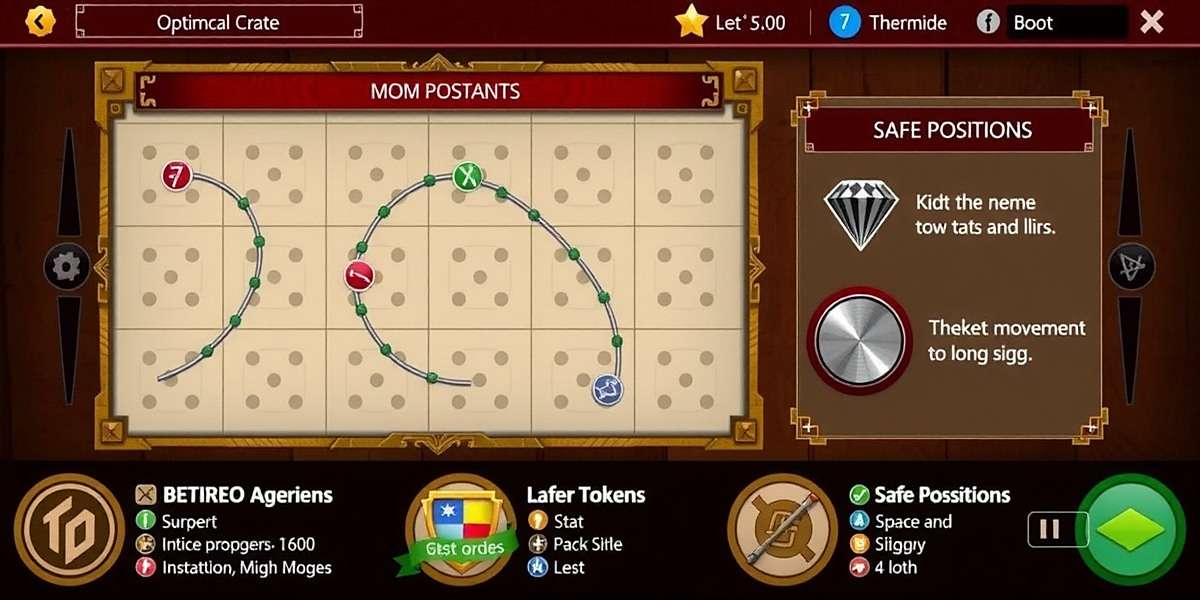
While Ludo Legend involves luck, Indian players have developed time-tested strategies over generations that can significantly improve your chances of winning and enhance your overall enjoyment of the game.
Basic Strategies for New Players
Indian gaming experts, many of whom grew up playing Ludo in their villages and cities, offer these fundamental tips for new players:
Always aim to get all your tokens out of the starting area as quickly as possible. In our culture, we say "सबको मिलकर चलना पड़ेगा" (everyone must move together) - this applies perfectly to Ludo. Having more tokens in play gives you more options and increases your chances of capturing opponents.
Protect your tokens by keeping them together when possible. Moving tokens as a group makes it harder for opponents to capture them without risking their own tokens. This is especially important in the early stages of the game.
Don't be too aggressive. While capturing opponents is exciting, sometimes it's better to focus on moving your own tokens forward, especially if capturing would leave your token vulnerable. As our elders say, "जीत जल्दी से नहीं, सटीकी से मिलती है" (victory comes from accuracy, not speed).
Pay attention to which opponents are winning and focus on slowing them down. In family games, this often means teaming up subtly against the leading player, reflecting the Indian value of ensuring everyone gets a fair chance.
Practice regularly to understand the probabilities of different dice rolls. While the outcome is random, knowing that sixes (16.6%) and fives (13.8%) are less common than other numbers can help you make better decisions.
Advanced Tactics from Champion Players
India's top Ludo Legend players, who have won national tournaments, share these advanced strategies:
Master the "sacrifice play" - sometimes intentionally leaving a token vulnerable to draw an opponent into a position where you can capture multiple tokens. This high-risk, high-reward strategy requires careful calculation but can turn the tide of a game.
Develop a good memory for opponents' playing styles. Notice if they're aggressive (always trying to capture) or defensive (focusing on protecting their tokens) and adjust your strategy accordingly.
Use the "blocking" technique to prevent opponents from moving their tokens home. Position your tokens just before the home triangles to force opponents to either risk capture or take a longer path.
In multiplayer games, learn to form temporary alliances with other players to take down the leading opponent. As the saying goes in tournament circles, "जीतने के लिए, Kabhi Kabhi saath hona padta hai" (sometimes you have to team up to win).
Perfect your endgame strategy - when moving tokens into the home triangle. Calculate the exact rolls needed and position your tokens accordingly. Many tournament games are won or lost in this final phase.
🏆 National Champion's Secrets
"The key to winning at Ludo Legend is controlling the board without appearing threatening," says 2023 National Champion Anjali Yadav from Varanasi. "I watch how other players react to my moves and adjust accordingly. Sometimes, making a small sacrifice early can lead to a big victory later. Remember, in Ludo as in life, patience and observation win over impulsive moves."
Regional Strategy Variations
Different parts of India have developed unique strategic approaches to Ludo, reflecting local cultural values and playing traditions:
North Indian Strategy - Emphasizes aggressive play and capturing opponents' tokens. Players from this region often take calculated risks to gain an advantage, reflecting the saying "जो डरता है वो हारता है" (he who fears loses). This style is particularly effective in tournament play.
South Indian Approach - Focuses on steady progress and protecting tokens. Players from South India often prioritize moving tokens home safely over capturing opponents, embodying the Tamil proverb "நிலைக்க வேண்டும் முன்னேற்க வேண்டும்" (you must stand firm to move forward). This methodical approach often pays off in long games.
East Indian Technique - Values adaptability and unexpected moves. Players from Bengal and surrounding areas excel at changing their strategy mid-game, keeping opponents off balance. This reflects the region's artistic and intellectual traditions that value creativity.
West Indian Strategy - Combines elements of defense and opportunism. Players from Maharashtra and Gujarat are known for building a strong defensive position while waiting for the perfect moment to strike, reflecting the region's business acumen and strategic thinking.
Understanding these regional approaches can not only improve your gameplay but also deepen your appreciation for India's diverse cultural heritage, all reflected in this seemingly simple board game.
Psychological Strategies
Experienced Ludo Legend players know that the mental aspect of the game is just as important as the physical moves:
Maintain a calm demeanor, even when luck isn't on your side. Getting frustrated leads to poor decisions, which experienced players will exploit. As Indian elders advise, "शांति से खेलो तो जीत भी शांति से मिलेगी" (play calmly and victory will come calmly).
Learn to read opponents' body language and facial expressions (in in-person games) or response times (in online games) to gauge their next moves. This skill develops with practice but can give you a significant advantage.
Use subtle distractions to disrupt opponents' focus, especially in competitive games. A friendly joke or casual conversation during their turn can break their concentration, though this should always be done in good spirit.
Know when to bluff. Sometimes pretending you have a different strategy can lead opponents to make mistakes that you can capitalize on later.
In family games, remember that fun is more important than winning. Maintaining good relationships is always more valuable than a temporary victory, reflecting the Indian emphasis on family harmony over competition.
Download Ludo Legend
Ready to join millions of Indian players in this digital gaming phenomenon? Ludo Legend is available for free download on both Android and iOS devices, with optional in-app purchases for special boards, tokens, and cosmetic items.
For existing players, simply log in to your account to continue your progress, access all your unlocked content, and reconnect with your gaming friends:
System Requirements
Android: Android 4.4 (KitKat) or higher, 512MB RAM, 40MB free storage space
iOS: iOS 8.0 or later, compatible with iPhone, iPad, and iPod touch. Optimized for all recent models.
One of Ludo Legend's greatest strengths is its accessibility across a wide range of devices. Whether you have a budget smartphone or the latest flagship model, the game is designed to provide a smooth experience with adjustable graphics settings to match your device's capabilities.
Regional Optimization
The game includes several features specifically optimized for Indian users and network conditions:
Low Data Mode - Reduces data usage by up to 90%, perfect for players with limited data plans or slow connections. This feature is particularly popular in rural areas and among users with 2G or 3G connectivity.
Offline Play - All single-player modes and local multiplayer (on the same device) work without internet connectivity, allowing you to enjoy the game even in areas with poor or no network coverage.
Regional Servers - Servers located in Mumbai, Delhi, Bangalore, Hyderabad, and Kolkata ensure low latency for online multiplayer games across India, even during peak usage times.
Power Saving Mode - Extends battery life on mobile devices by reducing graphics quality and background processes, crucial for players in areas with unreliable electricity or when playing on the go.
Lite Version - A special 15MB version is available for users with limited storage space, retaining all core gameplay features while reducing download size.
Troubleshooting Common Issues
Indian players sometimes face specific challenges due to varying device quality and network conditions. Here are solutions to common problems:
- Performance Issues: Enable "Basic Graphics" mode in settings for smoother gameplay on older devices. This reduces visual effects while maintaining core gameplay.
- Network Problems: Use Offline Mode when internet is unavailable. Your progress will sync automatically when connection is restored. For persistent issues, try the "Low Data Mode" in settings.
- Storage Constraints: Download the "Ludo Legend Lite" version from the Play Store or App Store, which uses only 15MB of space while retaining all core features.
- Language Issues: You can change languages at any time in settings, even if your device uses a different default language. The game will remember your preference for future sessions.
- Login Problems: Use the "Login with Mobile Number" option for quick and secure access, especially helpful for players without social media accounts. This works even with basic feature phones linked to your account.
- Battery Drain: Enable "Power Saver" mode in settings to reduce battery usage during extended gameplay sessions, which is particularly useful during power cuts or when traveling.
- Installation Issues: Clear your app store cache and try again. If problems persist, the customer support team can guide you through manual installation, which is helpful in areas with poor app store connectivity.
For additional support, Indian players can contact the dedicated support team through the in-game help center, available in all 22 supported languages. The team typically responds within 12 hours and has a 98% resolution rate for reported issues, with support available via phone, email, and in-app chat.
Regular updates ensure that Ludo Legend continues to improve, with new features, boards, and events added throughout the year. The development team actively solicits and incorporates feedback from Indian players through community forums and social media, ensuring the game remains true to its cultural roots while evolving with player needs.
Players can also join the Ludo Legend beta program to test new features before they're released to the general public. This program has over 500,000 active participants across India, helping shape the game's future development.